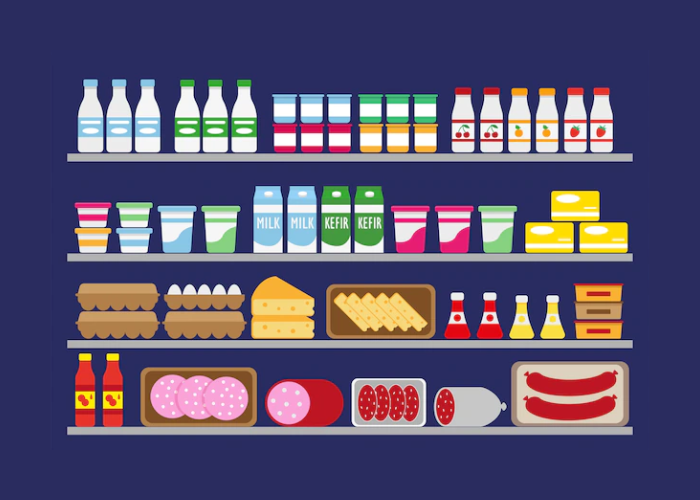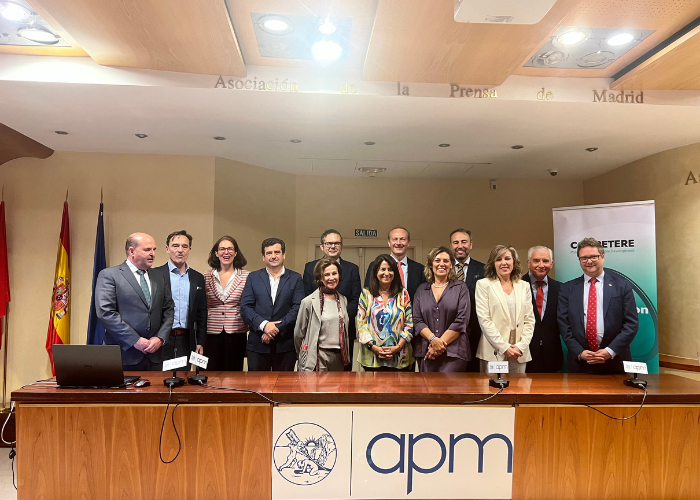Pros and cons of the FoP LabellingPRESS RELEASE
- 6 June 2023
- Posted by: Competere
- Categories: Empowering Consumers, highlights, Media, News

>> Download the press release in Spanish <<
REPRESENTATIVES OF THE FOOD INDUSTRY AND POLITICIANS DISCUSS THE PROS AND CONS OF FoP LABELLING
***
- During the conference “FoP nutrition labelling in Spain and EU: which path to follow?”, Pietro Paganini stated that “the causes of poor nutrition are so complex that traffic lights or color scales are not going to solve the problem”.
- The initiative has also had representatives of the food sector, who have insisted on the importance of consumer education and training, to reject models that discriminate against products and on the need for Brussels to opt for voluntary models.
- Representatives of the PSOE, PP and VOX have also analyzed the legal situation from a political perspective, pointing out that they are against front labeling.
The European Commission is preparing a review of Front of package of labeling, a task that is not proving to be easy and that has generated a wide division of opinions between countries and sectors such as meat, dairy, or olive oil and others who have expressed their opinion against Nutriscore, one of those that would be proposed and that, in some cases, is already being used on a voluntary basis.
To assess where we find ourselves and shed some light on future possibilities, we carried out the conference “FoP nutrition labelling in Spain and EU: which path to follow?”, where representatives of the food sector and political groups debated the different points of view they hold in the face of this situation.
Pietro Paganini highlighted how “labels are not only a means of informing consumers, but they can also be an ideological, political and commercial tools. Political movements, scientific groups and bureaucrats want these labels to tell consumers if the product is good or bad for our health. However, the main problem is none other than poor diet, malnutrition, obesity and all the diseases related to these problems”.
Horacio González-Alemán, general director of Thoffood, moderated the sector representatives’ debate. The panel included, Giuseppe Aloisio, assistant to the general secretary of ANICE; Aurelio del Pino, president of ACES; Pilar Ayuso, member of the Board of Directors of the OCU; Ascensión Marcos, CSIC research professor; Gabriel Trenzado, General Director of Agri-Food Cooperatives of Spain; Enrique García-Tenorio, director of the PDO Montes de Toledo; and María Martínez-Herrera, director of sustainability at ASEDAS.
During their interventions, all the representatives agreed that labeling is an instrument and producers will continue to offer the best to society. Likewise, the participants reached a consensus that the key solution lies in citizen education, empowering the consumer to make informed choices with their individual freedom. Rather than dictating what is good or bad, the focus should be educating the consumer about the mechanisms of nutrition and our bodies. The challenge to improve society’s nutrition is to be able to create personalized diets, allowing everyone to make free and informed decisions according to individual needs.
Similarly, while there have been studies on the application of the Nutriscore system, not everyone perceives it as sufficiently valid. Some have expressed concerns regarding its effectiveness and highlight its potential negative impact on certain industry sectors. In the same way, there has been unanimity in the need for the European Commission to take consumers into account and work on a voluntary and harmonized model, at a European level, to avoid the alteration of intra-community trade.
Finally, in order to find out about the legal situation from the perspective of each political group, a roundtable was held moderated by Ricardo Migueláñez, general director of Agrifood Comunicación, in which Ana María Romero, secretary of Agriculture, Livestock and Fisheries of the PSOE; Ricardo Chamorro, spokesman for the VOX Agriculture, Fisheries and Food Commission; and Milagros Marcos, spokesperson for the PP in the Agriculture, Fisheries and Food Commission participated.
During the colloquium, Romero pointed out that from the PSOE “we do not agree with the current Nutriscore” and has assured that “we defend the Mediterranean diet, because a homogeneous system is necessary throughout the European Union”.
Marcos has pointed out that “if we are not capable of guiding the consumer towards healthier habits with a color system, it is useless”. Lastly, she stated that “a front-of-pack label that provides information but does not take into account the quality of the products, is not the one that should be applied”.
On the other hand, the representative of VOX has affirmed that his party “opposed this type of labeling” and added, “we defended that it had to be stopped urgently because it did not meet the information perspectives, it treats people as numbers”.
In conclusion, Pietro Paganini stressed that “it must be made to understand that the ingredients are not what cause these diseases, but rather the diet and lifestyle as a whole” and added that “the causes of poor nutrition are so complex that traffic lights or color scales are not going to solve the problem. Nutriscore, so far, has not brought any improvement to public health. Since its introduction in France in 2017, obesity levels in France have doubled. It is a system that appeals to the consumer emotionally, whose colors influence children and young people, to convince their parents to add it to the shopping cart”.
In short, this issue is still being studied based on the guidelines that the European Union is marking.
.
>> Leggi il comunicato stampa in italiano <<
.

